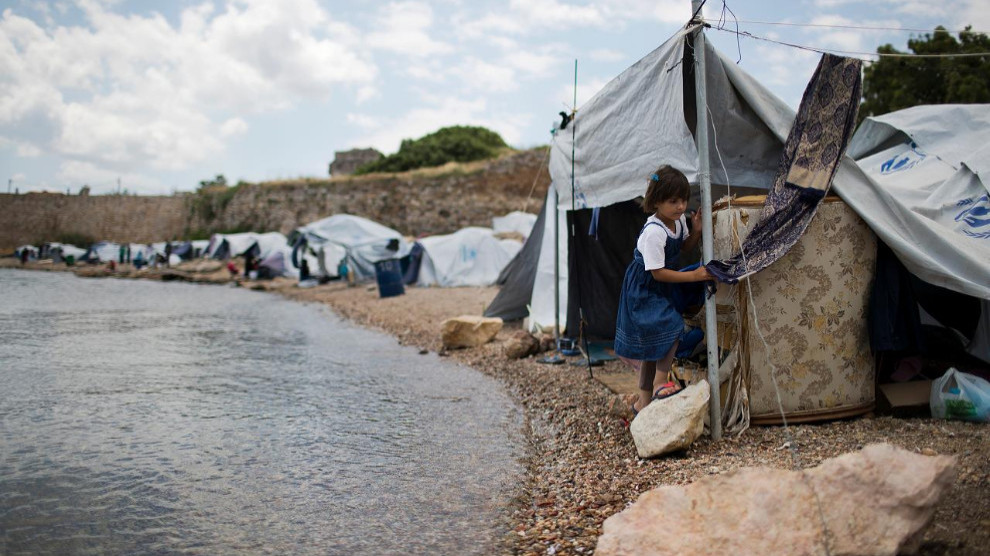Greece to reinforce its borders with Turkey
The new Greek government had made no secret of its intention to reinforce the country's borders with Turkey.
The new Greek government had made no secret of its intention to reinforce the country's borders with Turkey.

Only last Thursday, more than 500 boats carried migrants reached the island of Lesbos from Turkey.
It is because of this uptick in the number of refugees crossing from Turkey that Greece has progressively tried to reinforce its borders.
A few weeks back the government said in a statement: ""Our plan involves better use of European Frontex (border) forces, reinforced coast guard patrols with upgraded equipment, and better, more transparent management of European funds."
The UN High Commissioner for Refugees noted that the flow of migrants to Greek islands from Turkey had increased in recent months, exceeding 12,000 since the start of the year.
After the latest arrivals to Lesvos, the Athens government's Foreign Relations and Defense Council convened immediately and took a series of decisions to combat "illegal immigration".
The Greek press talked of the establishment of security points at critical spot to try and prevent the influx vby sea.
Greek officials plan to increase border controls with the assistance of the European Union's Border Security Agency (Frontex) and NATO.
In addition, the government has decided to increase police controls for the arrest of refugees whose application for asylum has been rejected in Greece.
The government, which plans to speed up the process for asylum applications, also apparently wants to lift the right of appeal of asylum-seekers whose applications are rejected.
10,000 refugees in Lesbos occupy the space of 3,000
More than 21,000 people are being held in centers established for "illegal immigrants" on the islands in eastern Greece.
In the camps on the island of Lesbos, which has a capacity to host 3,000 refugees, 10,000 refugees are forced to live in harsh conditions.
The Turkey-EU deal, or how Turkey keeps the EU by the neck
On 18 March 2016, the European Council and Turkey reached an agreement aimed at stopping the flow of irregular migration via Turkey to Europe. According to the EU-Turkey Statement, all new irregular migrants and asylum seekers arriving from Turkey to the Greek islands and whose applications for asylum have been declared inadmissible should be returned to Turkey.
The agreement followed a series of meetings with Turkey since November 2015 dedicated to deepening Turkey-EU relations as well as to strengthening their cooperation on the migration crisis, with notably the EU-Turkey Joint Action Plan activated on 29 November 2015 and the 7 March 2016 EU-Turkey statement. In addition, on 15 December 2015, the Commission proposed a voluntary humanitarian admission scheme for Syrian Refugees in Turkey.
The European Union has begun disbursing the 3 billion Euro of the Facility for Refugees in Turkey for concrete projects; work has also advanced on visa liberalisation and in the accession talks, including the opening of Chapter 17 last December 2015.
In September 2016, the European Commission announced the creation of an ‘Emergency Social Safety Net’ of €348 million starting from October 2016. Up to one million of the most vulnerable refugees will be able to meet their basic needs by receiving monthly cash-transfers via an electronic card.